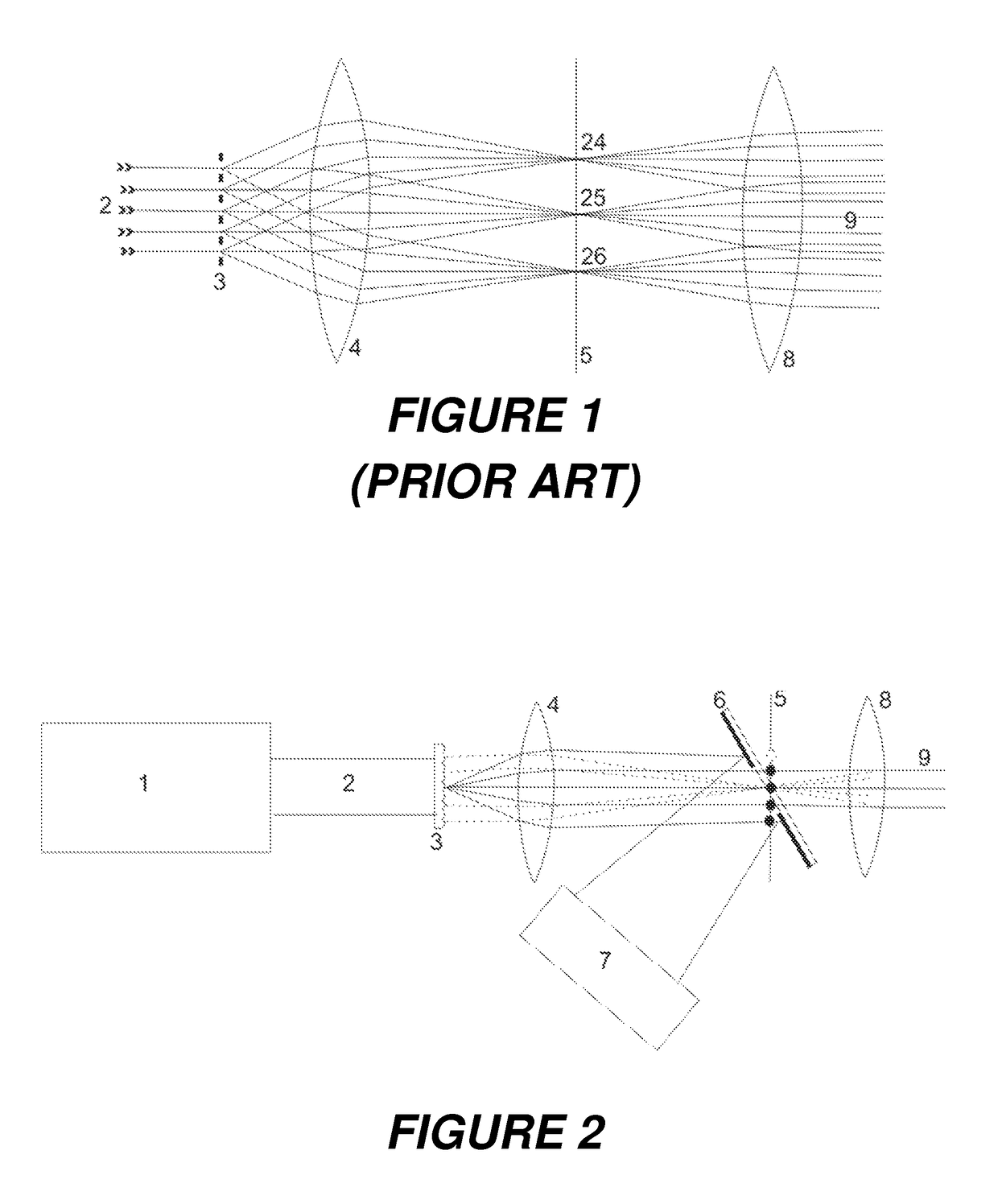Mass spectrometer with laser spot pattern for MALDI
a mass spectrometer and laser spot pattern technology, which is applied in the direction of lens, particle separator tube details, instruments, etc., can solve the problems of too few ions per shot from this small sample volume, excessive consumption of sample in undesirable way, and very soon reach the level of spontaneous fragmentation of ionized molecules, etc., to achieve an exceptional high degree of ionization of analyte ions
- Summary
- Abstract
- Description
- Claims
- Application Information
AI Technical Summary
Benefits of technology
Problems solved by technology
Method used
Image
Examples
Embodiment Construction
[0024]The invention proposes a mass spectrometer with a laser system whose main objective is to generate spatially divided spot patterns with several peaks of approximately equally high intensity on the MALDI sample with only small energy losses, where the pattern-generating elements are inexpensive and not sensitive to adjustment. In a first embodiment, which will be described further below, nine spots are generated in each case; and five spots with a second embodiment; but other patterns with other numbers of spots also seem to be possible. The diameters of the spots can be changed as desired by shifting lenses, for example. Single spots or spot patterns with more than twenty spots can also be produced, which means that an optimum degree of ionization for analyte ions can be achieved for any sample shape, any type of preparation, and any analytical ask.
[0025]In other words, a mass spectrometer with a UV laser system is proposed which, with very low energy losses, produces not only...
PUM
 Login to View More
Login to View More Abstract
Description
Claims
Application Information
 Login to View More
Login to View More - R&D
- Intellectual Property
- Life Sciences
- Materials
- Tech Scout
- Unparalleled Data Quality
- Higher Quality Content
- 60% Fewer Hallucinations
Browse by: Latest US Patents, China's latest patents, Technical Efficacy Thesaurus, Application Domain, Technology Topic, Popular Technical Reports.
© 2025 PatSnap. All rights reserved.Legal|Privacy policy|Modern Slavery Act Transparency Statement|Sitemap|About US| Contact US: help@patsnap.com



